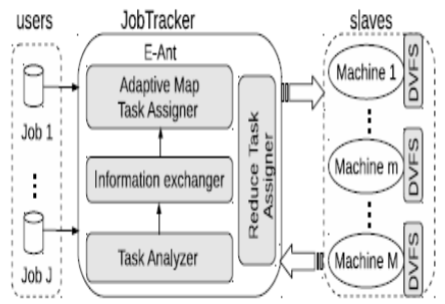Efficient Mapping of Large-scale Data under Heterogeneous Big Data Computing Systems
Main Article Content
Abstract
Hadoop biological systems become progressively significant for professionals of huge scale information examination, they likewise acquire huge energy cost. This pattern is dynamic up the requirement for planning energy-effective Hadoop clusters so as to lessen the operational costs and the carbon emanation related with its energy utilization. Be that as it may, in spite of broad investigations of the issue, existing methodologies for energy proficiency have not completely measured the heterogeneity of both workloads. So that here enhancing the model by find that heterogeneity-unaware task task methodologies are hindering to both execution and energy effectiveness of Hadoop clusters. Our perception demonstrates that even heterogeneity-mindful methods that intend to decrease the job fulfillment time don't ensure a decrease in energy utilization of heterogeneous machines. We propose E-Ant which plans to get better the general energy utilization in a heterogeneous Hadoop group without giving up job execution. It adaptively plans heterogeneous workloads on energy-effective machines. E-Ant utilizes a subterranean insect state improvement approach that creates task assignment arrangements dependent on the input of each jobs energy utilization by Tasktrackers and also we incorporate DVFS method with E-Ant to further improve the energy proficiency.
Article Details

This work is licensed under a Creative Commons Attribution-NoDerivatives 4.0 International License.

